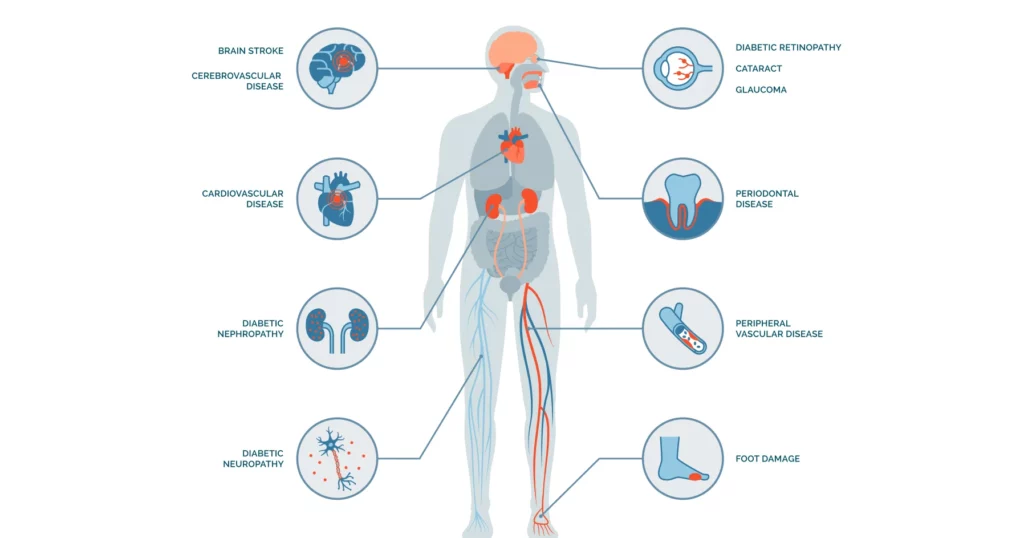Diabetes Mellitus Complications

Diet and lifestyle changes play a crucial role in managing various health conditions, improving overall well-being, and preventing chronic diseases. Implementing healthy habits can lead to weight management, better metabolic function, and reduced risks for conditions like diabetes, heart disease, and obesity. Below are key diet and lifestyle changes to consider:
- Increase intake of fruits and vegetables: Aim for a variety of colorful fruits and vegetables to ensure adequate intake of vitamins, minerals, and fiber.
- Choose whole grains: Whole grains like brown rice, oats, quinoa, and whole wheat provide more nutrients and fiber compared to refined grains, helping maintain steady blood sugar levels.
- Lean proteins: Include sources of lean protein like chicken, turkey, fish, beans, lentils, and tofu, which help with muscle repair and metabolism.
- Healthy fats: Incorporate healthy fats from sources like olive oil, avocados, nuts, and seeds. These fats are beneficial for heart health and help keep you satisfied.
- Limit processed foods and sugar: Reduce the intake of sugary drinks, sweets, and processed snacks that contribute to weight gain and insulin resistance.
Regular Physical Activity
- Exercise regularly: Engage in at least 150 minutes of moderate-intensity exercise (such as brisk walking, swimming, or cycling) per week. Include strength training exercises twice a week to build muscle mass and improve metabolism.
- Stay active throughout the day: Take short walks, use stairs instead of elevators, and incorporate movement into daily tasks to avoid a sedentary lifestyle.
- Yoga and mindfulness: Practices like yoga, meditation, and deep breathing exercises can help reduce stress, improve flexibility, and enhance mental well-being.
